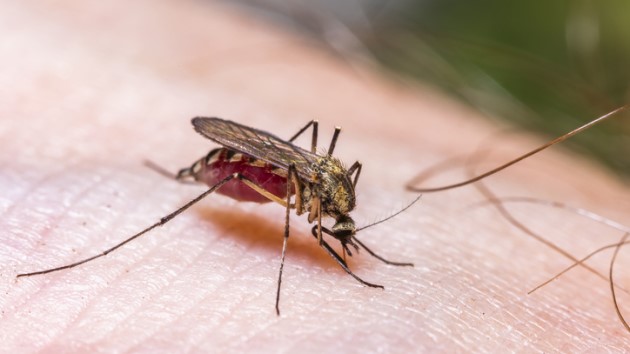(NEW YORK) — Two cases of a rare mosquito-borne disease have been reported in Alabama, including one death, according to officials.
The cases of Eastern Equine Encephalitis (EEE) occurred in Spanish Fort, Alabama, — nine miles east of Mobile — the city said in a Facebook update.
The Alabama Department of Public Health declined to provide any information about the patients including names, ages or sexes.
Dr. Wes Stubblefield, a district medical officer with the ADPH, told ABC News that the cases are the first reported in the state this year. Between 2003 and 2022, just eight cases were reported in Alabama, he said.
EEE is a rare but serious disease that spreads by bites from infected mosquitoes. It does not spread via touching or droplets from coughing or sneezing, according to the Centers for Disease Control and Prevention.
Most people who are infected either show mild symptoms or no symptoms at all. However, severe cases usually begin with fever, headache, chills and vomiting before progressing to encephalitis, which is swelling of the brain, or meningitis, which is swelling of the membranes that surround the brain and spinal cord.
There are no vaccines and no treatments specifically for EEE. The CDC says rest, fluids and over-the-counter pain medications may help relieve some symptoms.
On average, about 11 human cases are reported every year. Many survivors have ongoing neurologic problems including convulsions, paralysis and intellectual disability and about 30% result in death.
As of Aug. 15, just one case of EEE has been reported in the U.S. in a Louisiana patient, according to the CDC. No details are available about the patient or their condition.
In a release on Monday, the ADPH warned the public about protecting themselves and their homes from mosquitoes.
This includes using insect repellant, wearing loose and long shirts and pants, using air conditioning and keeping screens on windows and doors.
Additionally, the City of Spanish Fort, where the cases were located, said in its Facebook post that it sprays for mosquitos weekly and that it is working with the Baldwin County Health Department and the Alabama Department of Public Health “to set mosquito traps in various areas of the City for testing purposes.”
Stubblefield said it’s important to know the mosquito species that cause EEE primarily bite at dawn and dusk compared to the species that cause Zika, for example, which bite during the day.
“We want people to protect themselves the best they can,” he said. “We want our providers to know this is a possibility, especially in the south, in the Gulf region, and how dangerous this virus can be and hopefully we can void any further cases.”
Copyright © 2023, ABC Audio. All rights reserved.












